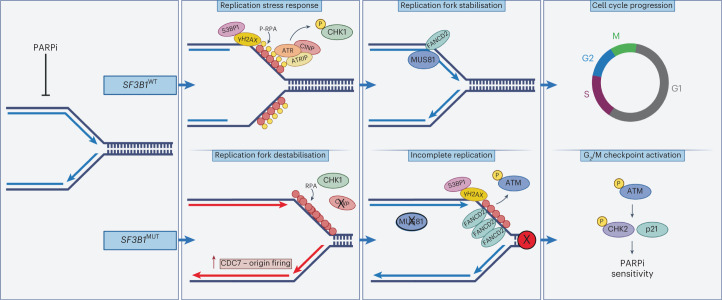Fig. 8. Graphical schematic of the mechanism of PARPi sensitivity in SF3B1MUT cells.
When exposed to PARPi, SF3B1MUT cells show an impaired replication stress response (lack of pCHK1 (S317), pATR and pRPA32) due to reduced CINP protein expression. This leads to increased origin firing, unchecked fork progression and unresolved replication intermediates via the lack of MUS81-positive FANCD2 foci. This results in ATM activation and the induction of pCHK2 (T68), stalling SF3B1MUT cells at the G2/M checkpoint.

